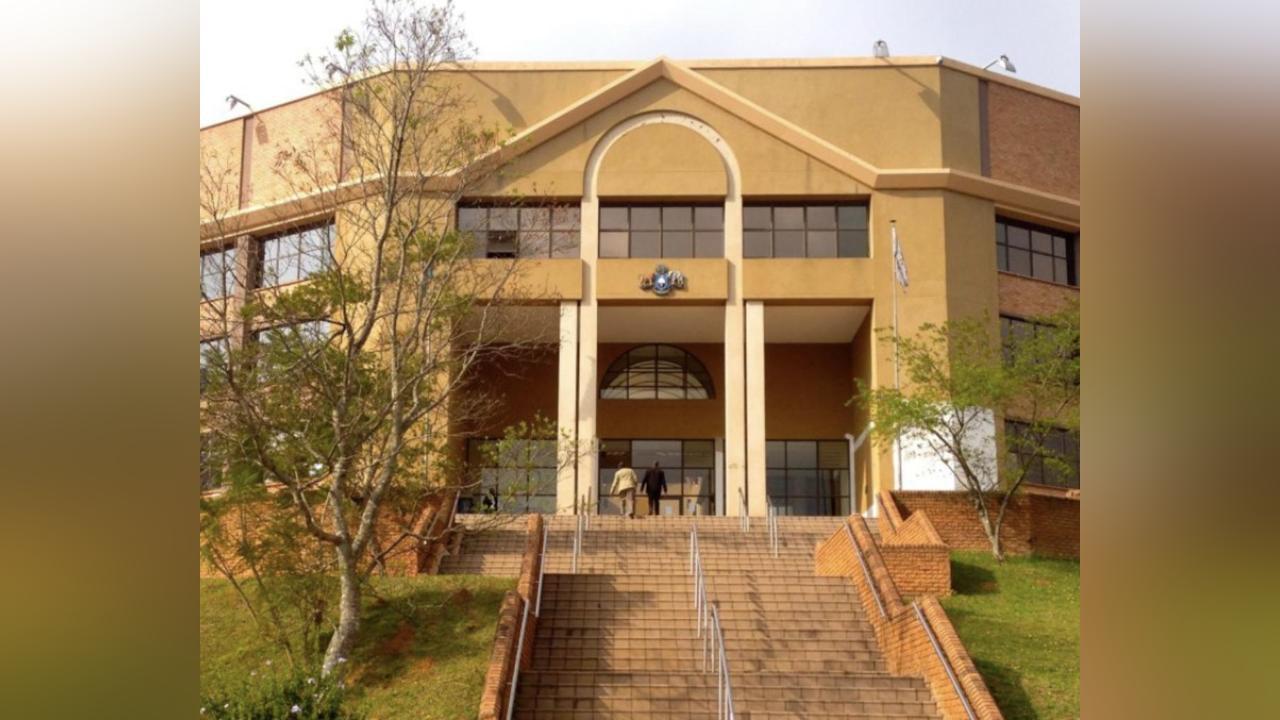Africa-Press – Eswatini. When it comes right down to it, the judicial probe instituted by the chief justice a couple of weeks ago is both a failure and an unfortunate miss.
This is not based merely on the debate over who should have set it up in the first place for it to be legitimate or whether the chief justice is by default investigating himself in the process.
That is neither here nor there. For me, the big picture is whether this probe can achieve what it sets out to do, from the premise of the perceived corruption, maladministration and downright abuse of power in the Master’s office. Essentially, the question is if anyone believes anything good will come out of this process in the first place, enough for the public confidence in the judiciary itself.
You get the sense that the answer to this is a big, no. Or that, this is just a show of brute force by the chief justice – and nothing else.
To underscore this point, we ought to look at the extent of the rot that has charectisrised the Master’s office, to the extent that the failure to provide the oversight and service it was set out to do has become so institutionalised no one expects it to do the right thing. This ought to have been the spot of bother for the judiciary, but here we are, many decades later, the corruption and abuse of power is synonymous with the office so much that when the probe was announced, we all knew what to expect.
challenged
It is an open secret that there is a lot of rot in the office, and the decision to institute a judicial inquiry was not so much of a surprise more than it was a question of why now – and why him. Perhaps the why now later, but the why him has already dominated the conversation from the court of public opinion, with many questioning the chief justice’s action in the midst of a court action that is still obtaining following parliament’s interest for a similar inquiry.
The very fact that the chief justice has been challenged in court and has needed the Supreme Court to support his argument makes this judicial inquiry decision all the more circumspect. This is to say, it could not have been a forgone conclusion that he could wake up and decide he was now going to probe the office of the master, because he has the powers to do so. But, that he needed to challenge himself if this could be right in the first place, and what the import would be if he were to do so. But, we all know that the chief justice is not in the business of worrying about how things will look in the court of public opinion, so long as he does what he says he will do. In this case, what he cares about is the powers of his office and his independence.
There can be no debate as to the independence of the judiciary and the extent to which this must be defended and protected. However, this should not be to the detriment of the well-known dictum of ‘justice being seen to be done’, which to me trumps the chief justice’s obsession for authority and powers to set up such a probe – or indeed that directive that castrated the anti-corruption commission and thereby entrenching corruption in this country.
legitimacy
At the core of the administration of justice, is the fair reflection principle, which talks to public confidence and legitimacy. Therein lies the problem with the probe into the master’s office, for whatever the chief justice seeks to achieve, it must get the buy-in from the public – or, at the very least, the public must believe that whatever outcome it will be fair and legitimate.
For me, that should be at the base of the decision by the judiciary in deciding to set up a judicial commission, not a show of power and authority. It goes to the heart of protection of the judiciary that the JSC and the chief justice will dispense with any criticism of their decision on the basis that they run the show, and not necessarily if it they are invested in the decision to protect the image and integrity of the departments that they now want us to believe are under their supervision.
This to me is why the probe is such a failure in the first place, because the chief justice can’t argue that as the supervising authority, he cares about cleaning the rot and corruption that has been institutionalised and has tainted the image of the judiciary so spectacularly even judges are not going to walk out of this spotless.
Yet, the chief justice has never once cared to stamp his authority to protect this independence, not least to crack the whip, regardless of the many cases of alleged maladministration in that office. It is always business as usual, and from the little we know, people have gotten away with murder.
The JSC has not once acted to take disciplinary action against any of the officers in the Master’s office, yet the chief justice is arguing supervisory authority over the office.
In fact, someone said the other day that the arrogance in the offices of the Master is so widespread you’d swear there is no one responsible for those officers. I don’t recall any instance of discipline within the office, yet, every single day there are cases being reported about one person or the other. It is almost as if the officials are untouchable, something that has led to the calls for a parliamentary probe – because no one had bothered to take action before.
Perhaps this is why this collapse of the public trust in the office is his responsibility and his failure. It is why he can’t be the one probing it, and why it is arguable that he is probing himself – because the buck stops with him! The chief justice and the JSC are the wrong people to now brag to us about their authority over the office because they have done nothing all along.
corruption
The other point is that the entire judiciary is implicated in the mess at the Master’s office, one way or the other.
The chief justice has been reported to have been engaged, over one case or the other, and reportedly did nothing. The chief justice allocates judges to handle issues of estates and cases brought before the courts – and at the very least, the judgments have left a lot to be desired – if not leading to criticism of the justice system and further allegations of abuse and corruption.
The judges themselves have their hands dirty, allegedly (one must be careful here!). They have presided over many of the cases that the victims are definitely going to report to the probe and one way or the other, there is a conflict. The judges have been accused of being impartial and a lot of the cases have to do with their judgments anyway.
Yet, everyone in the judiciary should know and care that appearance of bias is enough to invalidate a judicial decision, which is to say, from the get-go, the JSC should have thought through this one very critical part; if justice would be seen to be done when the JSC constitutes this inquiry. If not, then there is no point and the decision should have then been left to someone else.
For this part alone, the CJ needs to accept that it would serve justice to allow an independent body to probe the Master’s office – because at the core of it, would be the opportunity to address the concerns and take meaningful action. The notion that the CJ is probing himself should concern his office a lot more than the argument over lawful authority and mandate.
The Law Society has already made a compelling case about why the chief justice has to stop the process and perhaps it would make sense to agree to this position and find common ground in how the probe should be constituted. After all, it means more than the charade that will cost us a lot of money without yielding any tangible outcome.
appreciate
If the chief justice wants to demonstrate that he understands the concerns about the allegations of impropriety at the master’s office, or that the public no longer trusts the integrity of that office and the judiciary, then he will appreciate that there can only be one way to solve this issue.
The solution lies with parliament, as an oversight body and from which the public can have confidence, not least because parliament carries the mandate of the people. This would at least allow the judiciary the much-needed introspection it deserves, and for once, cause those in the office of the master and many of the officials who have committed crimes, to panic.
As it is, the CJ only needs to walk into any of the offices to see if there is any bother about a judicial commission of inquiry with impending outcome on the way. The answers lie with that response from the Master of the office when asked what response she had to a complaint by Thembi Dlamini, “I am yet to compile my responses and will respond in due time.”
This could not have summed up the attitude of the office at a time when the spotlight is directly on their conduct.
Source: observer
For More News And Analysis About Eswatini Follow Africa-Press







